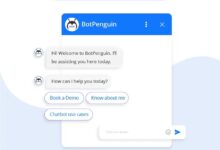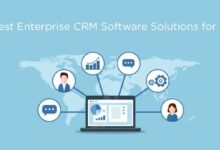CRM Software Cost: 7 Shocking Truths You Must Know in 2024
Thinking about CRM software cost? You’re not alone. Businesses worldwide are asking: How much should I really pay? The answer isn’t simple—but we’ll break it down with real data, hidden fees, and smart strategies to save you thousands.
Understanding CRM Software Cost: The Big Picture

When evaluating CRM software cost, most people focus only on the monthly subscription fee. But that’s just the tip of the iceberg. A true understanding of CRM pricing involves factoring in implementation, training, customization, integration, and long-term scalability. According to Gartner, over 60% of companies underestimate their total CRM investment by at least 30% in the first year alone.
What Is CRM Software?
CRM stands for Customer Relationship Management. It’s a technology used to manage all your company’s interactions with customers and potential clients. A CRM system helps businesses streamline processes, improve customer service, increase sales, and boost marketing effectiveness.
- Tracks customer interactions across email, phone, social media, and live chat.
- Stores contact details, purchase history, and communication logs.
- Automates sales pipelines, lead scoring, and follow-ups.
“A CRM isn’t just a database—it’s the central nervous system of your customer experience.” — Forbes
Why CRM Pricing Varies So Much
The CRM software cost can range from free to over $300 per user per month. This massive variation stems from several key factors:
- Deployment Type: Cloud-based (SaaS) vs. on-premise solutions have vastly different cost structures.
- Vendor Tier: Entry-level tools like HubSpot Free differ dramatically from enterprise platforms like Salesforce Sales Cloud.
- Business Size: Startups pay less than multinational corporations due to fewer users and simpler needs.
- Industry Requirements: Healthcare, finance, and e-commerce often require specialized compliance features that drive up costs.
CRM Software Cost Breakdown: What You’re Actually Paying For
To truly understand CRM software cost, you need to dissect every component. Most vendors advertise a low monthly rate, but the real expense emerges when you add essential services. Let’s explore the full cost structure.
Subscription Fees Per User
This is the most visible part of CRM software cost. Vendors typically charge per user per month. However, pricing tiers often unlock features incrementally, meaning you might need to upgrade just to access basic automation.
- Basic Tier: $10–$25/user/month (e.g., Zoho CRM, Insightly)
- Professional Tier: $25–$75/user/month (e.g., HubSpot Sales Hub, Salesforce Essentials)
- Enterprise Tier: $80–$300+/user/month (e.g., Salesforce Enterprise, Microsoft Dynamics 365)
For a team of 10, this means annual costs ranging from $1,200 to over $36,000—just for subscriptions.
Implementation and Setup Costs
Implementation is where many businesses get blindsided. Migrating data, configuring workflows, and integrating with existing tools takes time and expertise.
- Self-Service Setup: $0–$2,000 (suitable for small teams using intuitive CRMs like Agile CRM)
- Consultant-Led Implementation: $5,000–$50,000+ (common for Salesforce or Microsoft Dynamics)
- Custom Development: $10,000–$100,000+ (for complex business logic or legacy system integration)
A study by Nucleus Research found that the average company spends 1.8 times its annual license fee on implementation alone.
Training and Adoption Expenses
Even the best CRM fails if your team doesn’t use it. Training is critical—but often overlooked in CRM software cost calculations.
- Internal Training: 2–5 hours per employee × hourly wage
- External Trainers: $100–$200/hour
- Online Courses: $500–$2,000 for team licenses
Poor adoption can cost up to 30% of your expected ROI, according to CIO.com.
Hidden Costs in CRM Software: The Silent Budget Killers
The advertised price is rarely the final price. Hidden costs in CRM software cost structures can double your initial estimate. Let’s expose the most common culprits.
Integration Fees with Other Tools
Your CRM doesn’t work in isolation. You’ll likely need to connect it to email platforms, marketing automation tools, ERP systems, or e-commerce stores.
- Native Integrations: Often free (e.g., Gmail, Outlook)
- Third-Party Connectors (via Zapier, Make): $20–$100/month
- Custom API Development: $5,000–$25,000 one-time cost
For example, integrating Salesforce with Shopify might require middleware or developer work, adding thousands to your CRM software cost.
Customization and Development Charges
Off-the-shelf CRM features rarely fit every business perfectly. Custom fields, workflows, reports, and dashboards often require coding or configuration.
- Low-Code Customization: $1,000–$10,000
- Full Custom Module Development: $15,000–$50,000+
- Ongoing Maintenance: $2,000–$10,000/year
Vendors like Salesforce charge premium rates for their certified developers—often $150+/hour.
Support and Maintenance Overruns
Not all support is created equal. Basic email support may be included, but phone support, SLAs, and priority tickets often come at a premium.
- Standard Support: Included in most plans
- Premium Support: 15–25% of annual license fee
- On-Site Support: $200–$500/hour
For mission-critical operations, downtime can cost thousands per hour—making robust support worth the investment.
Top CRM Platforms and Their Real-World Pricing
Let’s compare actual CRM software cost across leading platforms. We’ll look beyond the brochure prices to reveal what businesses really pay.
Salesforce: Power at a Price
Salesforce dominates the enterprise CRM market, but its CRM software cost is among the highest.
- Salesforce Essentials: $25/user/month (basic CRM)
- Salesforce Professional: $75/user/month
- Salesforce Enterprise: $150/user/month
- Salesforce Unlimited: $300/user/month
But here’s the catch: Salesforce rarely sells standalone licenses. Add-ons like CPQ, Marketing Cloud, or Service Cloud can double or triple your bill. Implementation by a Salesforce partner typically starts at $15,000 and can exceed $100,000 for large deployments.
HubSpot: Transparent but Scalable Costs
HubSpot is known for its free CRM, but advanced features come at a cost.
- Free CRM: $0 (limited features)
- Starter: $15/month (up to 1,000 contacts)
- Professional: $800/month (sales hub, marketing hub)
- Enterprise: $3,200/month
Unlike per-user models, HubSpot often charges per seat and per hub. A full-stack deployment for 10 users can easily exceed $10,000/year. Plus, exceeding contact limits triggers automatic upgrades.
Microsoft Dynamics 365: Enterprise Flexibility
Dynamics 365 offers modular pricing, but complexity drives up CRM software cost.
- Sales Professional: $65/user/month
- Customer Service: $95/user/month
- Marketing: $2,000/month (minimum 5 users)
- Finance & Operations: $180–$240/user/month
Integration with Microsoft 365 and Azure is seamless, but customization requires Power Platform expertise. Total cost of ownership (TCO) over five years often surpasses $250,000 for mid-sized firms.
How to Reduce CRM Software Cost Without Sacrificing Value
You don’t have to overspend to get a powerful CRM. Smart strategies can cut CRM software cost by 30–50% while improving ROI.
Start with a Clear Needs Assessment
Many companies buy more CRM than they need. Conduct a thorough audit of your sales, marketing, and service processes.
- List must-have vs. nice-to-have features
- Estimate user count and growth over 3 years
- Identify integration requirements early
This prevents overbuying and reduces long-term CRM software cost.
Negotiate Like a Pro
Vendors expect negotiation. Don’t accept the listed price.
- Ask for annual billing discounts (often 10–20%)
- Bundle modules for lower rates
- Request free training or implementation credits
For enterprise deals, involve a procurement specialist. Salesforce and Oracle often offer significant concessions for multi-year contracts.
Leverage Open Source and Free Tools
For startups and small teams, free or open-source CRMs can be game-changers.
- HubSpot CRM: Free forever with robust features
- Zoho CRM: Free for up to 3 users
- SuiteCRM: Open-source, self-hosted, no licensing fees
While they lack enterprise scalability, these tools can handle core CRM functions at near-zero CRM software cost.
Cloud vs. On-Premise CRM: Cost Implications
The deployment model significantly impacts CRM software cost. Let’s compare cloud-based (SaaS) and on-premise solutions.
Cloud-Based CRM: Lower Upfront, Higher Long-Term
SaaS CRMs like Salesforce, HubSpot, and Zoho dominate the market due to low entry barriers.
- Pros: No hardware costs, automatic updates, scalable, pay-as-you-go
- Cons: Recurring fees, data ownership concerns, limited customization
Over five years, a cloud CRM for 20 users at $50/user/month costs $60,000 in subscriptions alone—plus integration and training.
On-Premise CRM: High Initial, Lower Ongoing
On-premise solutions like Microsoft Dynamics (self-hosted) or Oracle Siebel require significant upfront investment.
- Initial Costs: $50,000–$200,000 (software licenses, servers, setup)
- Ongoing Costs: $10,000–$30,000/year (maintenance, IT staff, upgrades)
- Break-Even Point: Typically 3–5 years vs. cloud
Best for large enterprises with strict data control needs and existing IT infrastructure.
Future Trends Impacting CRM Software Cost
The CRM landscape is evolving fast. Emerging technologies are reshaping CRM software cost models.
AI and Automation: Premium Pricing
AI-powered features like predictive lead scoring, chatbots, and sentiment analysis are becoming standard—but they come at a premium.
- Salesforce Einstein: +$50/user/month
- HubSpot AI Tools: +$800–$1,500/month
- Microsoft Copilot for Sales: +$30/user/month
By 2025, Gartner predicts 70% of new CRM deals will include AI add-ons, increasing average CRM software cost by 25%.
Usage-Based Pricing Models
Some vendors are shifting from per-user to per-activity pricing.
- Charging per email sent, per automation run, or per API call
- Benefits: Pay only for what you use
- Risks: Unpredictable bills during high-activity periods
This model works well for seasonal businesses but can spike CRM software cost unexpectedly.
Consolidation and All-in-One Platforms
Companies are moving toward integrated platforms (CRM + marketing + service + analytics) to reduce complexity.
- Examples: HubSpot, Zoho One, Salesforce Customer 360
- Cost: Higher upfront, but lower integration and management overhead
- Savings: Up to 20% compared to managing multiple point solutions
Zoho One, for instance, offers 50+ apps for $37/user/month—far cheaper than buying each separately.
Calculating Your True CRM Software Cost: A Step-by-Step Guide
To avoid budget overruns, calculate your total cost of ownership (TCO) over 3–5 years. Here’s how:
Step 1: Define Your Requirements
Document your must-have features, user count, data volume, and integration needs. This prevents scope creep and unnecessary upgrades.
Step 2: Get Detailed Quotes
Request itemized quotes from vendors. Ask for:
- Per-user pricing
- Implementation fees
- Training costs
- Support tiers
- Renewal rates
Step 3: Project Hidden Costs
Estimate:
- Data migration: $2,000–$10,000
- Customization: $5,000–$20,000
- Integration: $3,000–$15,000
- Downtime during rollout: $1,000–$5,000
Step 4: Compare TCO Across Vendors
Build a spreadsheet comparing 3–5 vendors over a 3-year period. Include all direct and indirect costs. The cheapest monthly rate may not be the best value.
Step 5: Monitor and Optimize Post-Implementation
After launch, track usage, adoption, and ROI. Cancel unused features, renegotiate contracts, and optimize workflows to reduce CRM software cost over time.
What is the average CRM software cost for a small business?
The average CRM software cost for a small business (1–10 users) ranges from $50 to $500 per month. Entry-level tools like Zoho CRM or HubSpot Free can cost $0, while mid-tier solutions like Salesforce Essentials or Insightly run $25–$75 per user per month. Implementation and training can add $1,000–$5,000 initially.
Is there a CRM with no hidden fees?
While no CRM is entirely free of additional costs, platforms like Zoho CRM and HubSpot are praised for transparency. Zoho offers a free plan for up to 3 users with no credit card required. HubSpot’s pricing is clear, though exceeding contact limits or adding hubs increases costs. Always read the fine print on data migration, support, and renewal terms.
Can I negotiate CRM software pricing?
Yes, absolutely. Most vendors, especially enterprise ones like Salesforce, Oracle, and Microsoft, expect negotiation. You can often secure discounts for annual payments, multi-year contracts, or bundling services. Don’t hesitate to ask for free training, extended trials, or waived setup fees.
Are free CRM tools worth it?
Free CRM tools like HubSpot CRM and Zoho CRM are excellent for startups and small teams. They offer core features like contact management, deal tracking, and email integration at no cost. However, they may lack advanced automation, reporting, or customization. For growing businesses, upgrading is usually necessary within 1–2 years.
How much does Salesforce really cost?
Salesforce lists prices from $25 to $300 per user per month, but the real cost is higher. When you include implementation ($15,000+), training, custom development, and add-ons like Marketing Cloud, total first-year costs for a 10-person team can exceed $50,000. Always request a full TCO estimate from a Salesforce partner.
Understanding CRM software cost goes far beyond the monthly subscription. Hidden fees, implementation, training, and long-term scalability all play a role. By analyzing your needs, comparing total cost of ownership, and negotiating wisely, you can choose a CRM that delivers value without breaking the bank. The most expensive CRM isn’t always the best—and the cheapest isn’t always the smartest. The key is finding the right fit for your business size, goals, and budget. With the insights from this guide, you’re now equipped to make a confident, cost-effective decision.
Further Reading:



